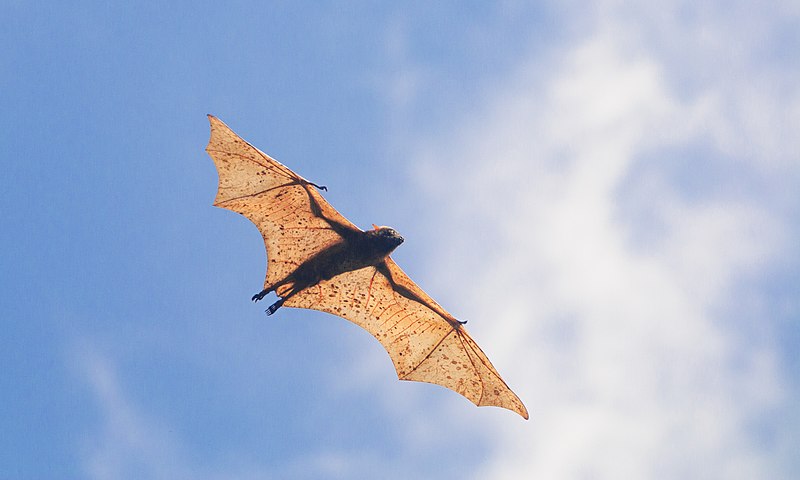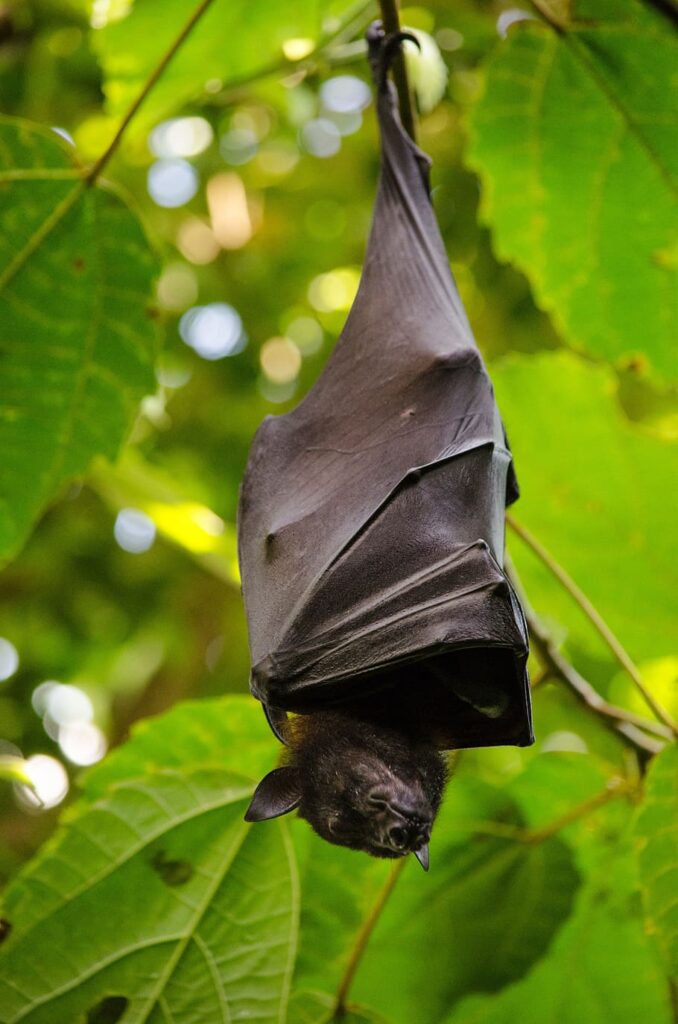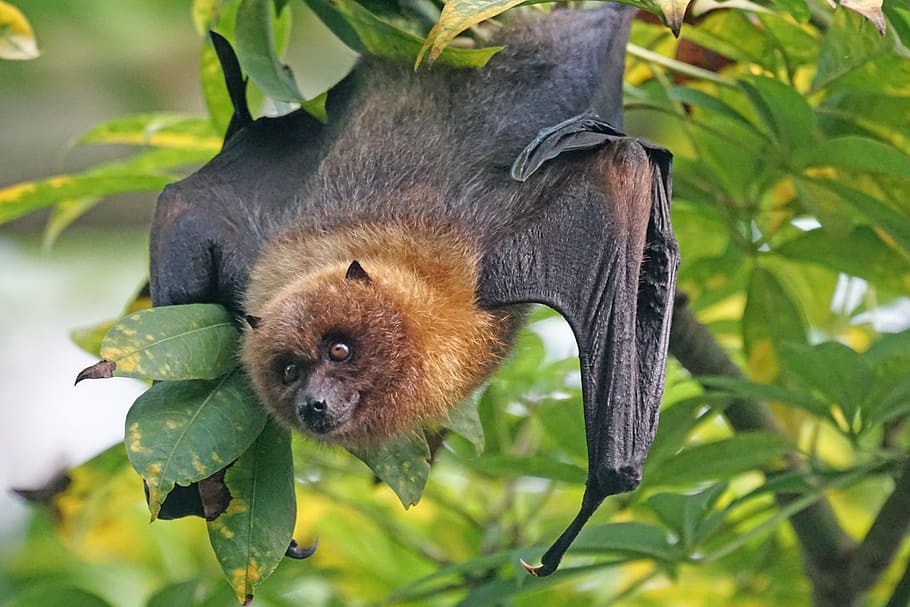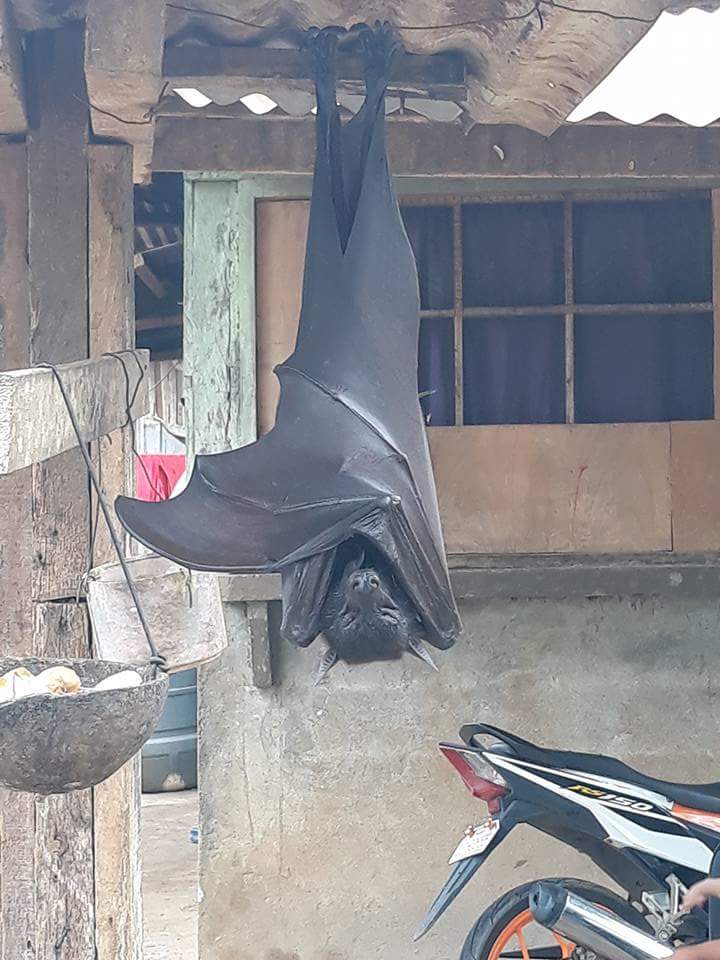The giant golden-crowned bat, native to the Philippines, may look terrifying with its enormous wingspan and vampire-like appearance, but it is actually a gentle creature struggling to survive in the face of poaching and deforestation. Viral images of these bats sparked interest and fear, with some mistakenly describing them as “human-sized” bats. However, the giant golden-crowned bat is one of the largest bat species in the world, with a wingspan of about 5 feet 6 inches and a small body weighing less than 3 pounds.

These fruit-eating megabats are harmless and pose no threat to humans. They are herbivores, foraging for roots, fruits, and vegetables at night. The golden-crowned flying fox is found exclusively in the jungles of the Philippines, often living in colonies of up to 10,000 members. During the day, they hang from trees with their clawed toes, sometimes alongside their smaller cousins, the large flying fox.

Unlike many other bats, the giant golden-crowned flying fox doesn’t rely on echolocation but instead uses sight and smell to navigate. They play a crucial role in combating deforestation by redistributing fig seeds and contributing to reforestation efforts. However, their habitat is rapidly being destroyed, with over 90% of the Philippines’ old-growth forests already lost. The bat population has declined by 50% from 1986 to 2016, leading to their classification as an endangered species.

Despite being protected by law, the bats are still hunted and killed for sale, sport, and consumption. Hunters shoot them while they are roosting, often injuring them in the process. The bats are intelligent creatures, comparable to dogs, with the ability to learn and remember tasks. They have a bad reputation due to their physical features, such as leathery wings, sharp teeth, and large eyes, but only a few bat species actually feed on blood.

It is disheartening to see these innocent and intelligent creatures losing their homes and lives to deforestation and poaching. Raising awareness about their plight is crucial to their survival.


